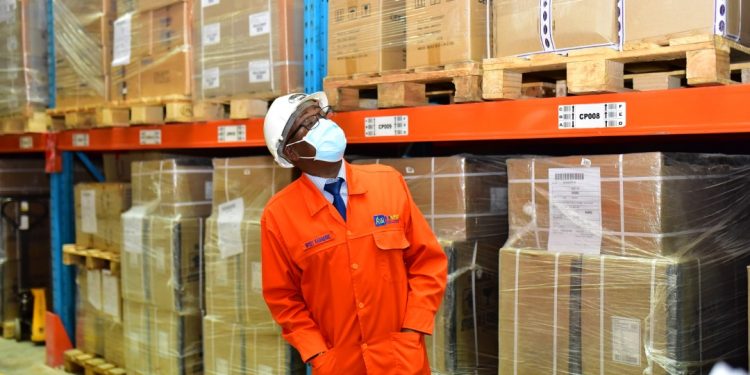Almost every aspect of modern life has been radically reshaped by technology, and healthcare, medical supplies handling is no exception.
Standing majestically west of the Kajjansi section of the Entebbe Expressway is the new National Medical Stores’ state-of-the-art pharmaceuticals warehouse the biggest in Africa.
The bold establish set to be occupied in a few months is the fulfillment of the vision of NMS General Manager Moses Kamabare who since taking over at the helm decided to steer a course towards transparency and digital medical supplies.
By 2008, the value of products handled by NMS was worth UGX 60 billion, but last financial year they were worth UGX 1.3 trillion. Consequently, the warehouse at Entebbe is not enough. Government of Uganda, development partners and the NMS Board seem to like Kamabare’s vision and since he was appointed CEO, President Museveni’s government committed USh20 billion (US$5.4 million), topping up on GAVI and Global Fund grants to pay for the construction of the facility that has cost almost Ush 70 billion.
The warehouse will have a vaccine workshop, a quality control laboratory, offices for more than 200 staff, cold storage rooms, garages and space to accommodate 30,000 pallets of medication. In comparison, the storage in Entebbe can accommodate a maximum of only 12,980 pallets.
In a media tour this week, Mr. Paul Okware Chief Stores and Operations Officer told “TheLocal,” “We are focused on driving medical supplies into the digital future, and this new home will be a centre of excellence in Africa using green energy to power its operations.”
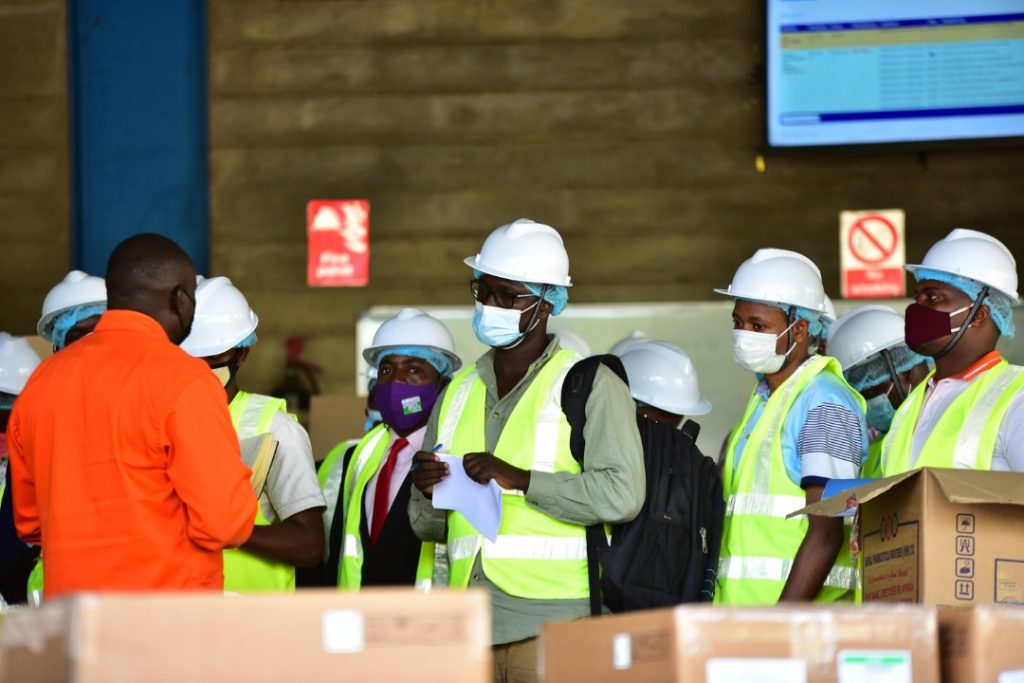
Okware showed the journalists how the facility, which sits on 10 acres (4 ha) of land has been mounted with solar panels capable of generating 300kV of electricity, providing 50 percent of the energy needs of the warehouse.
“There will be plenty of fresh air. We also have over 200 solar panels to generate the electricity we need,” he said.
Ms. Sheila Nduhukire, NMS Principal Public Relations Officer said that one of their main objectives is to consolidate, centralize and operate NMS services and infrastructure in one modern, purpose-built and efficient building, with a minimum sixty-year lifespan.
The building boasts an extensive room for the cafeteria, permanent dedicated space for breastfeeding employees, gym for staff to keep fit because they work for long hours.
The spacious warehouse in Kajjansi will allow vehicles to drive in to pick and drop medicines which is not the case at the stores in Entebbe.
The cold rooms which store sensitive medical supplies such as vaccines and laboratory commodities will have their storage capacity increased five-fold at the new structure.
To reduce the costs of servicing transport vehicles, space has been created for an in-house service centre.
With the pandemic straining Uganda’s healthcare, NMS want to secure the future of oxygen in Uganda with a new plant capable of producing 100 cylinders per day. The gas will be supplied mainly to public hospitals across Uganda but private facilities will be considered too.
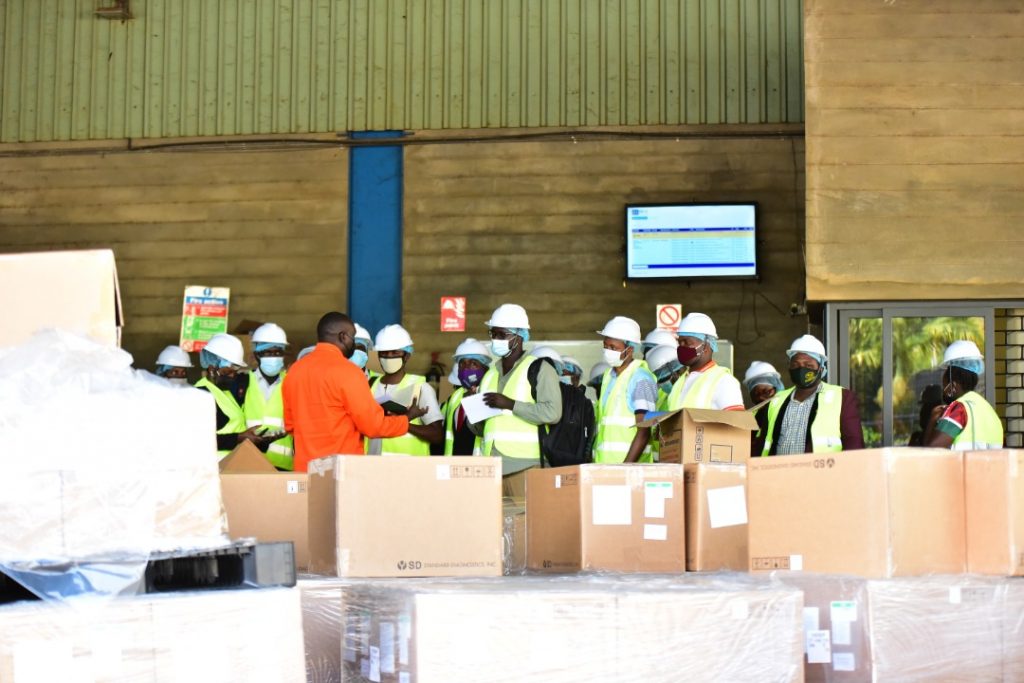
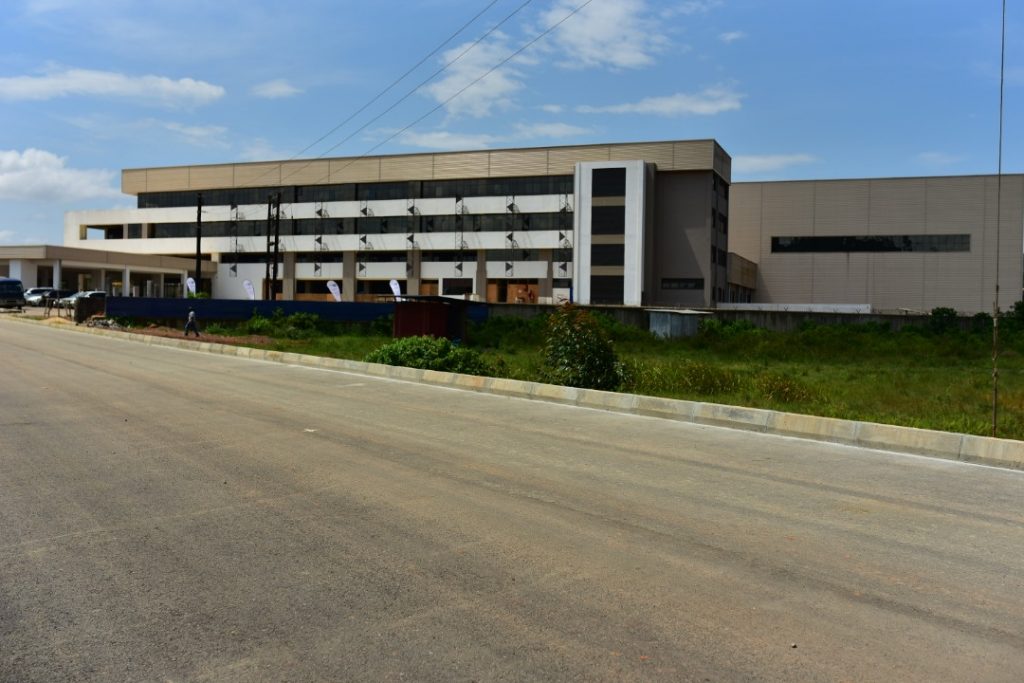
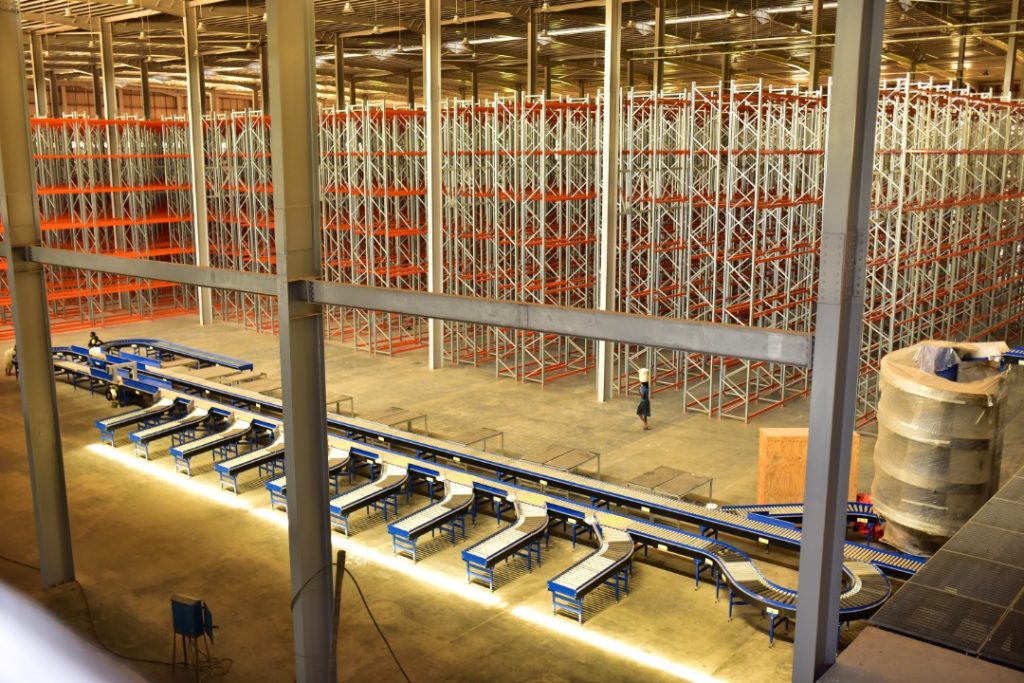
The National Medical Stores is mandated to procure, store and distribute human medication and health-related consumable items to government owned heath units across the country. Medicine availability across the country currently stands at 85% with a target of reaching 90% within the next 1-2 years.
The media also inspected the cold storage rooms where experts took them through the process of handling critical vaccines.
But before relocating to Kajjansi, NMS has made historical strides in the digital space.
Enter the gamechanger ‘NMS Plus’
There has been a tendency of some of the 3000 health facilities that NMS handles to submit their medicine requests outside the set deadlines according to the Store’s delivery schedule which hampers availability of medicines in the country. NMS delivers drugs to various government health facilities across the country based on a pre-determined schedule every two months which translates into six times every year but Mr. Okware noted that considerations are made for emergency requests, which partly eased things.
Also to note, health facilities have also been making orders using paper trails which sometimes gets misplaced or are poorly quoted.
But there is confidence that phasing out manual orders for drugs in a will address delays and other hitches in the distribution chain and will enable the health facilities to place orders for drugs from the comfort of their offices. The NMS + app, which is cost about $10 million (about Shs35b) is intended to streamline delivery of drugs in public health facilities across the country, transparency and foster accountability.
The new system will allow health facilities to place orders for drugs and when these orders reach NMS, health facilities will be able to monitor the progress of their orders through NMS processes from reception, picking from the warehouse, loading and delivery.
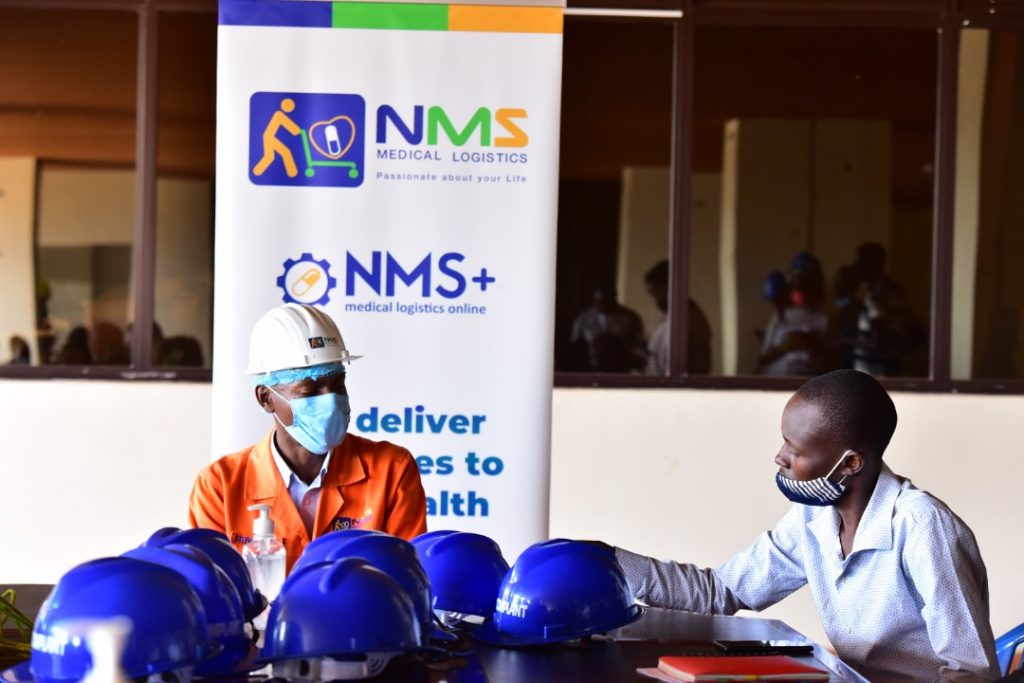
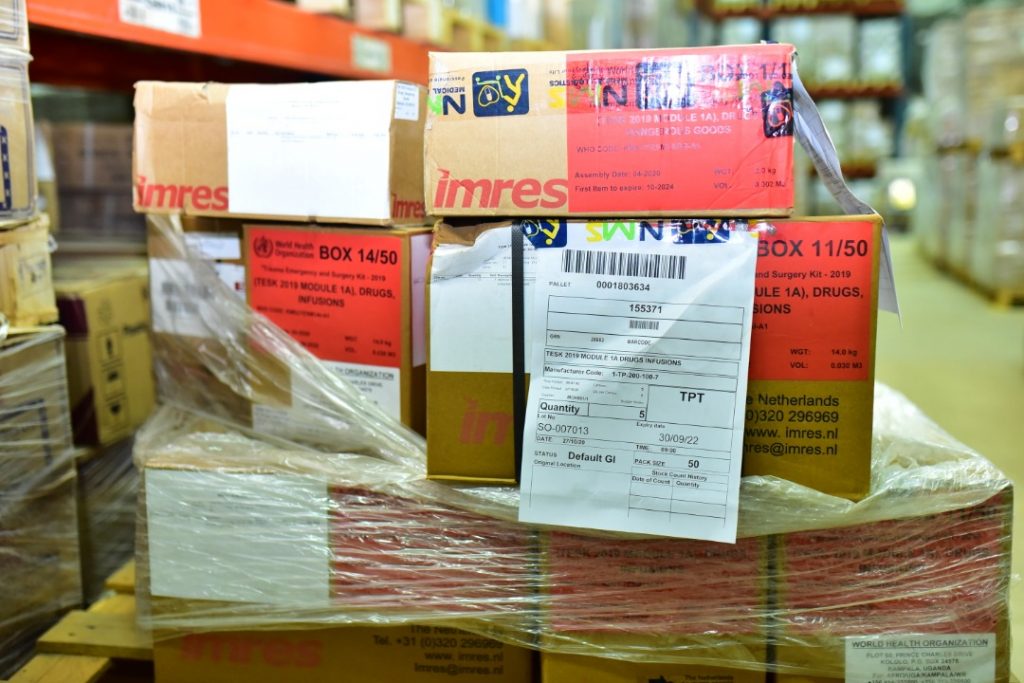
Taking effect on 1st July 2021, NMS had already conducted training in 144 health facilities out of the 268 targeted for the first phase (All Health Center IVs, general, regional and National referrals). Phase II that will last two years, will commence by August 2021 and take care of Health Centre IIIs and below.
Okware says NMS deserved commendation for registering a medicines expiry rate of 0.5% which is below the WHO recommended standard rate of 5%.
This simply means that, whereas cases of procured medicines expiring in the warehouse can’t be avoided as per the nature of medicines, in the case of NMS only medicines worth 0.5% of the total procurement in a FY gets disposed upon expiring on the shelf.
The WHO considers up to 5% as acceptable but the NMS management is now at 0.5% in comparison with the governing Board target of 2%.
The spotlight is now on NMS and other sister agencies on whether they will use the NMS+ app to ensure the common men in the remotest parts of the country are able to access drugs.




